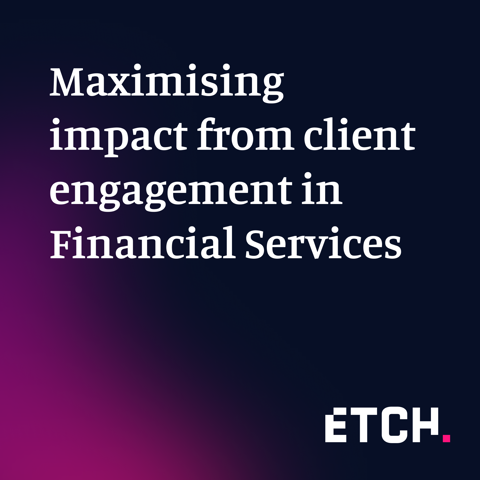
Maximising impact from client engagement in Financial Services
30th June 2025
Breaking free from operational complexity to unearth hidden revenue opportunities through time saving in service delivery.
Read moreAll the latest news and views from Etch